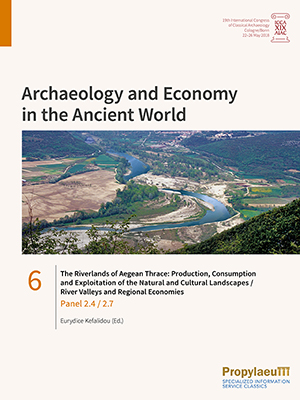Weaverdyck, Eli
The Riverlands of Aegean Thrace: Production, Consumption and Exploitation of the Natural and Cultural Landscapes | River Valleys and Regional Economies: Panel 2.4 | Panel 2.7
Rivers have always been vital supports for economies. They provided water for people and animals, irrigated the land, facilitated communication and trade through small vessels or rafts, aided industrial activities, formed rich hunting grounds for fishermen and hunters, and offered raw materials such as sand, gravel and placer deposits - including even gold. At the same time, the deltas and marshlands of rivers, created an inhospitable environment unsuitable for habitation, especially in periods of flood. Furthermore, rivers connected the sea and the littoral zone with the hinterland, and thus allowed the interaction between the populations which inhabited these areas, often locals and colonists/merchants.
The papers address topics such as the reconfiguration of ancient river routes, the settlement and exploitation patterns that were formed around them, the boundaries of the chora of various cities, towns, villages and farmsteads, and the communication or the tensions between different groups that moved or expanded beyond their original habitation zone due to environmental and/or economic reasons.
Panels 2.4 and 2.7 explore multiple facets of some Central and Eastern Mediterranean riverlands. Panel 2.4 investigates Aegean Thrace, i.e. the Northeastern part of Greece and the European part of Turkey. Panel 2.7 looks at three river valleys in two different areas: Athens and Attica with the Ilissos River; and Northeastern Italy with the rivers that flow in the areas of Verona and Parma.







